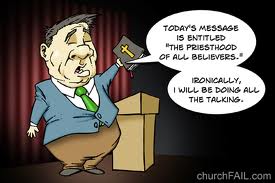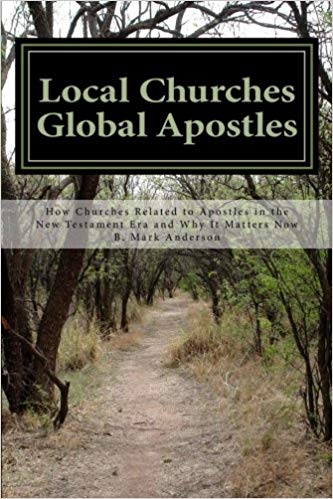
Why have more kids? You might be surprised. Here are 9 Bible reasons to have more kids.
1 What is the Great Commission?
Many would say, Go, therefore, and make disciples of all the nations . . .Matt 28:19
Yes; however, that is the Second Great Commission.
The First Great Commission is found in Genesis 1:28: Be fruitful and multiply, and fill the earth, and subdue it.
This first, great command from God to all mankind takes precedence over all others. It has never been rescinded, removed or changed. It is the original great commission to all humans and still tops God’s priority list.
2 Why does God want married couples to have more babies?
Babies fulfill God’s nature. Is that a surprise? Immediately after making humans into His image male and female, Gen 1:27, He happily commands, Be fruitful and multiply Gen 1:28. In other words, Make more babies–a lot more babies! God, the great Father appears emotional about this. He doesn’t tack on procreation as an afterthought. No, It’s right there at the forefront. He is clearly passionate about this. Multiply, and fill the earth. He’s not just saying add; rather, multiply! and don’t stop until all the earth is filled!
God’s nature is expressed as male and female. God’s nature is shown by His command to make more human babies. God’s nature is revealed in our human sexual drive.
Why have more babies? Because when we do, we are fulfilling God’s nature. We are satisfying the God Himself who created us. His twin aims? Populate earth and populate heaven.
Why have more babies? Because when we do, we are fulfilling God’s purpose for us. This is the reason He created us.
3 Why More Babies? Because to him who has shall more be given
Not just more babies, but more everything!
Want more blessings? Of course you do.
Kari and I learned this principle long ago. When someone offered to give us clothes for the family we said, “OK, thank you!” But if we said, “No, we don’t need any more clothes,” they probably never offered us anything in the future.
This is a Godly principle of Kingdom living: For to everyone who has, more shall be given, and he will have an abundance; but from the one who does not have, even what he does have shall be taken away (Matt 25:28).
Let me make this principle clear. We are not talking only about more children, but about more of every blessing of God.
Under God’s provision, we are either gaining or losing each day. Either growing or shrinking. God is a Giver–a superabundant Giver. When He finds someone willing to receive in one area, He willingly gives in all other areas.
It has been hard for me to learn to receive. One of the secrets of faith: Learn to freely receive. The result? We will never lack something to give.
I could not write this except for my wife, Kari. She wanted 12 children. Due to my past, I thought 3 was enough for us. We had a strong disagreement. I could see trouble brewing. Kari challenged me to read the Scriptures. I did, and was convicted.
4 Children are a gift of the Lord Psalm 127:3
If the Governor of your state wanted to give you a gift, would you turn him down?
Let’s Pause for a Moment
Some people want more children but are not married, unable to conceive or bring children to birth. Some of us are past the childbearing stage. We can’t go back. What we can do, however, is encourage young couples to submit child-bearing decisions to God. Who is Lord in this matter?
My pastor was our pre-marital counselor. If he had shown us these Bible reasons to have more kids, it would have been a huge help to our life and marriage.
This message–reasons for married couples to receive more babies–should not be controversial. It’s Bible living 101.
5 The fruit of the womb is a reward Psalm 127:3
Like arrows in the hand of a warrior,
So are the children of one’s youth; Blessed is the man whose quiver is full of them;
They will not be ashamed
When they speak with their enemies in the gate Psalm 127:3-5.
A singular cause of male insecurity is not doing what the Bible says. A remedy for a married man who does not feel successful is to have more children. Children are part of our manly weaponry. Think about it. . .
6 Having many kids glorifies God John 15:8
My Father is glorified by this, that you bear much fruit John 15:8
In Scripture there are several kinds of “fruit.” Fruit of the Spirit, fruit for our labor, natural fruit (think apples), and fruit of the womb (as in Psalm 127).
This is shocking. I’m still trying to process this. We all want to glorify God. And one way to do it is simply to have more kids!
7 Having many children is a proof of discipleship John 15:8
. . . that you bear much fruit, and so prove to be My disciples John 15:8.
Strong language!
For some couples this may offer hope: The Greek term used here can be translated become instead of prove. In other words, a young couple who are striving to become disciples of Christ can do so by having more babies, thus fulfilling the original great commission.
8 Why have more kids? So you can be happier!
But don’t take my word for it. Jesus claims These things I have spoken to you so that My joy may be in you, and that your joy may be made full John 15:11.
Jesus’ promise is sandwiched between two sentences about following His commands. Many men and women could have happier lives by simply slowing down and having more kids. Are you fully satisfied with life? Are you feeling like there’s more to life?
9 God never intended to spread the Gospel by the Second Great Commission alone
God always intended to cover the earth with the original Great Commission as well as with evangelism. Both are part and parcel of God’s plan of redemption.
Whenever a church or people group practices Genesis 1:28, God multiplies their influence.
The Roman Catholics before the widespread acceptance of birth control
Present day Hispanics
Muslims world wide
China
What will happen when evangelicals, charismatics, and Pentecostals begin to practice the First Great Commission and teach our children to do the same? All of the above groups say, “We believe the Bible.”
There are additional Bible reasons to have more kids. Do any come to your mind? Or do you have Bible reasons to disagree? If you wish, use the comment box below.
Bible reasons to have more kids
Let’s think big–
What a renewal! What a movement! What a cultural phenomenon! America will change. Europe will be transformed. No nation will ever be the same as Christian married couples accept Bible reasons to receive more babies..
The planet will be transformed!
Photo credit from CafeMom.com, the story off Britni Church, “A mother of 11 who is ready for more.”

















